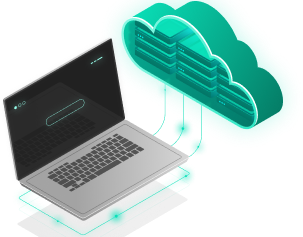Use Cases
Diagnoses
We use an LLM to analyze clinical reports and identify correlations between symptoms, diagnoses, and treatments, assisting healthcare professionals in making informed, personalized decisions for each patient.
Drug Discovery and Development
LLMs can analyze vast amounts of biomedical literature, clinical trial data, and molecular structures to accelerate drug discovery processes. By extracting insights from diverse sources, LLMs can suggest potential drug candidates, predict drug-target interactions, and optimize clinical trial designs
Natural Language Understanding in Healthcare Conversational Systems
LLMs enable advanced natural language understanding in healthcare chatbots and virtual assistants, allowing for more intuitive and effective patient interaction. These systems can answer patient inquiries, provide medication reminders, and offer personalized health advice based on individual medical histories.
Selection of Clinical Trial Participants
The use of LLMs to analyze and understand large amounts of medical and anamnestic data can help identify the most suitable participants for clinical trials. Machine learning algorithms can detect correlations and patterns in patient data, allowing researchers to more precisely select study subjects based on inclusion and exclusion criteria.
Prediction of Treatment Outcomes
LLMs can be used to analyze clinical data and predict treatment outcomes for patients with specific medical conditions. For example, machine learning models trained on oncology patient data can predict individual responses to chemotherapy or targeted therapies, helping physicians personalize treatment plans.
Identification of Biomarkers
Artificial intelligence can be employed to identify biomarkers related to treatment response or disease progression. LLMs can analyze genomic, proteomic, and clinical data to uncover hidden patterns and relationships, providing valuable insights for the development of predictive and diagnostic biomarkers.
Requirements Analysis and Project Planning
Collaborate with clients to understand specific requirements for automotive electronic component functional testing and develop a detailed plan for implementing LLMs in testing processes.
LLM-based Application Development
Customized applications using LLMs to automate and enhance automotive electronic component functional testing. These applications could include tools for analyzing technical documentation, processing test data, and generating detailed reports.
LLM Model Integration
Implement and integrate pre-trained or customized LLM models into clients' existing systems to improve the efficiency and accuracy of automotive electronic component functional testing.
LLMs can be used for a variety of tasks
Generating text, translating languages, writing different kinds of creative content, and answering your questions in an informative way
Summarizing large amounts of text in a concise and informative way
Generating new ideas and solutions to complex problems
What do we do

Consulting and support
Consulting and technical support for the use of enabling platforms and software for medical research and diagnosis. Consulting on the installation and configuration of artificial intelligence platforms, or on the operation of molecular simulation software.
Development
Development of customized IT solutions for medical research and diagnosis. For example, you could develop artificial intelligence algorithms for early disease detection, or software for the personalization of medical care.